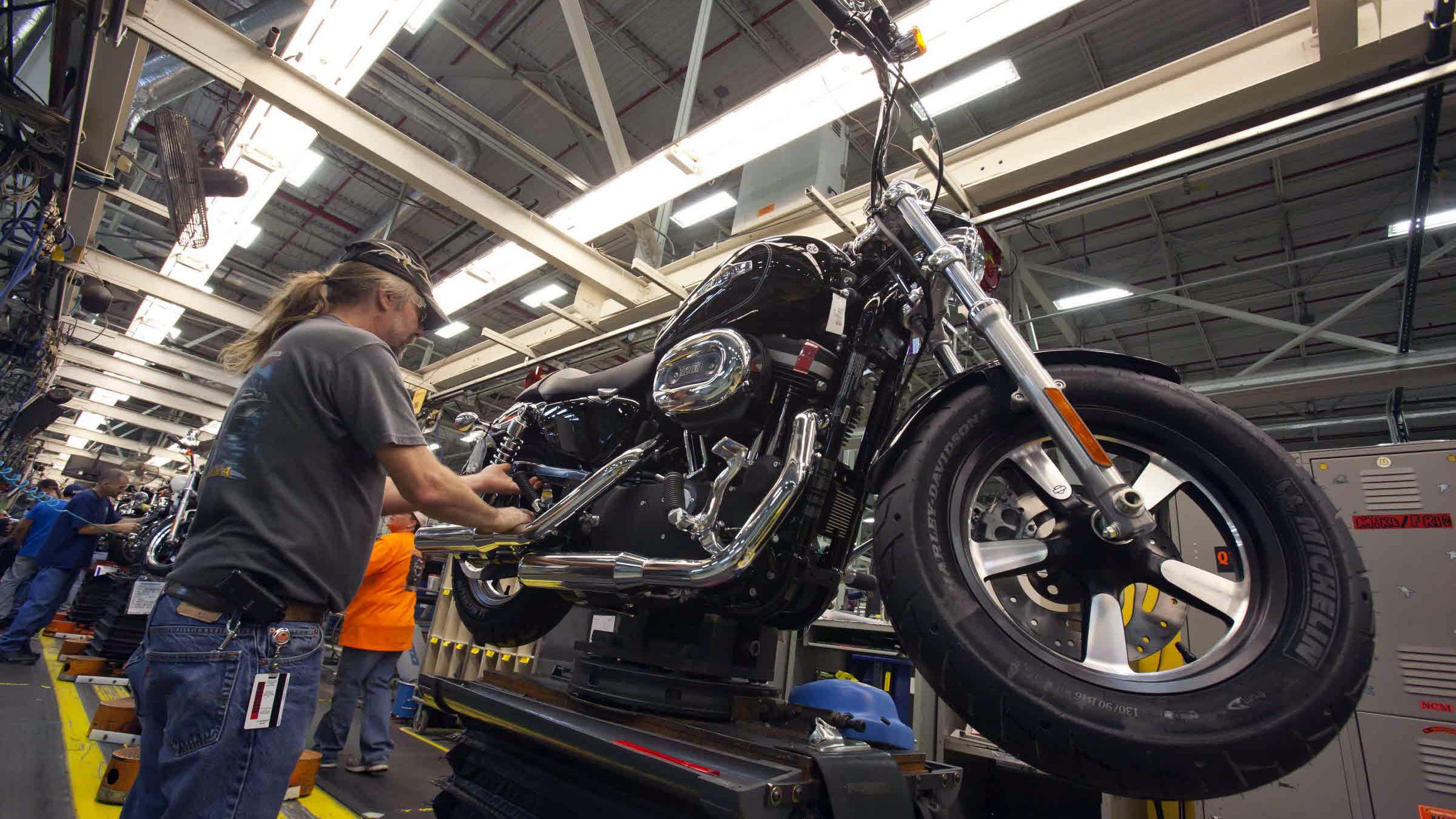The United Steelworkers Union and the International Association of Machinists and Aerospace Workers have ended a collaboration agreement with Harley-Davidson that's been in place for 22 years. Is this a bad thing? Probably not. It's likely that Harley doesn't want Milwaukee to end up like Detroit and they want to stay a viable entity in this new motorcycle market that needs to cater to the 18-to-34-year-old buyers or die a miserable death. How does this affect the future of the company and their employees?
Continue reading for more on the union pull-out.
What Does It Mean?
The unions' are mad that Harley has stopped consulting union leadership on decisions that affect the company. Lay-offs have been tough and the announcement of the new plant in Thailand has the unions in a tizzy claiming that the new plants takes jobs away from American workers. In fact, the new plant is needed to expand Harley's market in Asia. There is currently a 60% tariff on imports to the Asian market, so without the new plant, the U.S. factories wouldn't have that business anyway because the tariff would put the price tags those already-pricey bikes out of reach for the local populations.
The unions also cite job losses as a problem. Of the 2,000 workers in the York, Pennsylvania, factory in 2010, only 600 are employed there now. That sounds like it could be concern, but considering that the York plant production was folded into the factory in Kansas City, Missouri, consolidating the cruiser production from both plants into one. Some York employees were offered to keep their jobs if they followed the move to Missouri. Considering what we know now that Harley was already planning to drop the Dyna line, it's no surprise that they consolidated the cruiser assembly lines, and needed to take that action to keep a healthy business.
So the unions are mad that Harley isn't consulting them on decisions affecting the business, but it sounds more like Harley wants to make decisions that improve their business and the unions are a roadblock to that goal. According to Harley-Davidson spokeswoman Patricia Sweeney, the company is honoring the current union contracts, which remain unchanged by the terminated collaboration agreement.
"We believe that if we can bring new riders into the sport, here in the U.S. and internationally, that is going to result in company growth. says Sweeney. "And that growth is the only path to reverse the conditions we have been facing over the last couple of years."
So in a nutshell, Harley-Davidson needs to make decisions to keep itself as a viable company. If they can't do that, none of the current employees will have a job and we'll lose the oldest, continuously-operated motorcycle manufacturer in the U.S. That would be bad for everyone, so while the unions whine about the decisions Harley has made, they should at least recognize their hand it in the current state of affairs.
.

